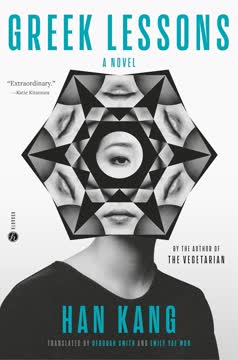Key Takeaways
1. Humanity's Innate Curiosity Drives Inquiry
‘All humans by nature desire to know.’
Natural curiosity. Aristotle believed that a fundamental characteristic of human beings is our inherent desire to understand the world around us. This curiosity isn't for a specific purpose but is simply what humans do, driving us to gather information and seek understanding.
First philosophy. This innate drive leads us to ask the most fundamental questions about existence, which Aristotle called "first philosophy" or metaphysics. These abstract reflections on the nature of being, influenced by thinkers like Parmenides and Heraclitus, explore what it means for something to exist and the fundamental features of reality.
Life of the mind. Engaging in intellectual inquiry and contemplating these big questions is, for Aristotle, the highest human activity. While few reach his intellectual heights, everyone participates in this activity through wonder and reflection, which he argued is essential for a fully happy and meaningful life.
2. Understanding Nature Requires Four Explanations
‘the body exists for the sake of the soul’.
Beyond materialism. Aristotle rejected the idea that things could be explained solely by their material components, arguing that understanding nature requires more than just knowing what something is made of. His extensive biological studies, particularly dissecting animals on Lesbos, showed him that the structure and function (form) were crucial, not just the matter.
Form and matter. For Aristotle, existing things are a combination of form and matter, where form is the structure, organization, and function, not just external shape. The "soul" (psychē) is the form of a living creature, representing its capacities and abilities, which distinguishes a living being from a corpse.
Four causes. To fully explain anything, especially in nature, Aristotle proposed four causes or explanations:
- Material Cause: What something is made of (e.g., bronze of a statue).
- Formal Cause: The shape, structure, and function (e.g., the figure of the statue, the ability to cut for an axe).
- Efficient Cause: What brought it into being (e.g., the sculptor, the parents).
- Final Cause: The purpose or goal (e.g., to be a statue, to produce a new horse).
The final cause, the "that for the sake of which," was often the most important for understanding natural processes and organisms.
3. Logic is the Essential Tool for Rational Thought
logic was not a part of philosophy proper but instead a tool that we can use when tackling philosophical problems.
Study of logos. Fascinated by the human ability to think, talk, and explain using complex language (logos), Aristotle effectively invented formal logic. He developed a method for assessing arguments and explanations, determining when conclusions validly follow from premises.
The Organon. His logical works, collectively known as the Organon ("tool"), were considered preparatory for philosophy itself, teaching how to argue correctly. These works analyzed the building blocks of thought:
- Categories: Classifying different ways words can be used (substance, quantity, quality, etc.).
- On Interpretation: Analyzing propositions (sentences that can be true or false).
- Analytics (Prior & Posterior): Formalizing arguments (syllogisms) and exploring how to gain scientific knowledge from true premises.
- Topics & Sophistical Refutations: Examining dialectical reasoning and fallacies.
Valid arguments. Aristotle meticulously mapped out valid argument forms, stripping away content to reveal the underlying structure (e.g., All A are B, All B are C, Therefore All A are C). This focus on form allowed for the systematic study of reasoning, laying foundations for scientific and philosophical inquiry.
4. Humans Are Naturally Social and Political Animals
human beings as ‘social animals’.
Community is natural. Aristotle famously described humans as politikon zōion, meaning social or political animals, emphasizing that we naturally live in communities. He saw the city-state (polis) as the ideal political organization, growing organically from families and villages.
Purpose of the polis. The city-state is large enough to provide more than just survival; it enables a rich cultural life (art, education, philosophy), allowing humans to flourish and live a good life. Active involvement in the community's governance is essential for individuals to actualize their potential as rational agents.
Avoiding extremes. In analyzing political structures, Aristotle favored mixed constitutions that balance the interests of different classes (rich and poor). He argued against pure oligarchy or democracy, which prioritize one group, advocating instead for a large middle class to foster friendship, partnership, and stability for the common good.
5. Literature Reveals Universal Human Truths
‘poetry is more philosophical and more serious than history’.
Art as imitation. Aristotle viewed art, particularly drama and poetry, as forms of imitation, reflecting aspects of human life and action. He was interested in both how art is made and its effect on the audience.
Power of plot. In tragedy, plot is paramount, focusing on actions and stories, especially sudden reversals of fortune that can befall anyone. A good plot has a clear beginning, middle, and end, with a sense of unity where all parts contribute to the central story.
Emotional catharsis. Tragedy, despite its often gruesome content, provides a pleasurable release through the purification (catharsis) of emotions like pity and fear. Experiencing these intense emotions in a safe, artificial setting helps us process them and learn from the characters' mistakes, which often stem from uncontrolled passions.
6. A Good Life is Found in Rational Activity and Virtue
‘the function of human beings is activity of the soul in accordance with reason’.
Pursuit of happiness. Aristotle argued that the highest good humans pursue for its own sake is eudaimonia, often translated as happiness, well-being, or flourishing. This is not a fleeting feeling but an objective state of living well, recognizable by others.
Function and virtue. Just as a good eye sees well, a good human being fulfills their unique function well. This function is our rationality ("activity of the soul in accordance with reason"). Flourishing (happiness) is the name for this proper functioning, which involves developing virtues (excellences) – both intellectual (like wisdom) and moral (like courage).
The golden mean. Moral virtues, Aristotle suggested, lie in a middle ground between two extremes or vices (e.g., courage between cowardice and recklessness). Finding this mean requires experience and practical judgment, as it involves acting towards the right person, to the right extent, at the right time, for the right reason, in the right way.
7. True Aristotelianism is a Spirit of Open Inquiry
in order ‘to better imitate Aristotle,’ he wrote, ‘I will leave Aristotle … each time the sense shows me the opposite to be true’.
Lyceum's legacy. After Plato's death, Aristotle founded his own school, the Lyceum, a community of scholars dedicated to research and inquiry across disciplines. Though the school itself declined, its spirit and collected works profoundly influenced later intellectual centers like the Library of Alexandria.
Global influence. Aristotle's works were preserved and translated across Greek, Syriac, Arabic, Hebrew, and Latin traditions, becoming central to philosophy and science throughout the Middle Ages. Figures like Averroes and Aquinas built upon his ideas, and he was simply known as "the Philosopher."
Spirit over letter. While some later followers became dogmatic, slavishly adhering to his texts, the true Aristotelian spirit, as recognized by thinkers like Galileo, is one of open-minded inquiry, observation, and critical examination. Aristotle himself was tentative, open to revising theories based on new evidence, prioritizing truth over loyalty to any master. To be an Aristotelian in this sense is to embrace the natural human desire to know and engage in the ongoing process of understanding the world.
Last updated:
Review Summary
The reviews for Aristotle are generally positive, with readers praising its accessibility and comprehensive overview of Aristotle's life and work. Many appreciate the book's concise nature and clear explanations of complex philosophical concepts. Some reviewers found it an excellent introduction to Greek philosophy, while others noted its simplicity and brevity as both strengths and limitations. A few criticized the lack of deeper analysis or connections to modern thought, but overall, most readers found it a valuable primer on Aristotle's contributions to various fields of study.
Similar Books
Download PDF
Download EPUB
.epub digital book format is ideal for reading ebooks on phones, tablets, and e-readers.














